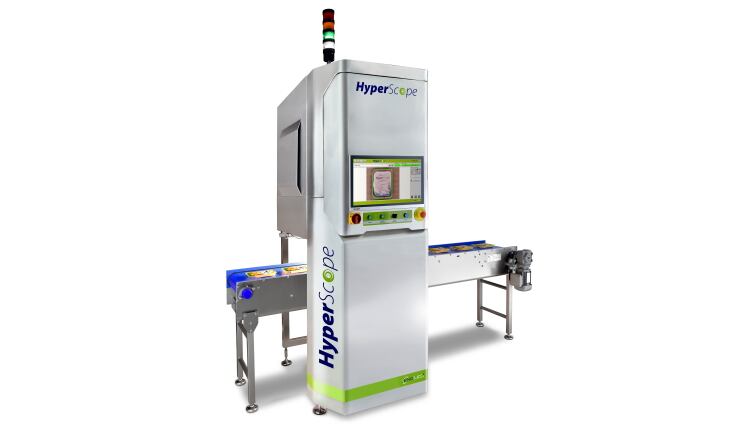HyperScope uses hyperspectral imaging, which analyses a wider light spectrum than just the visible range to check the seals on rigid trays, pots and other thermoformed packages sealed with plastic film, even when printed.
Infrared waves can penetrate plastic film. As different materials react uniquely to infrared light, they can be reliably detected based on their ability to transmit, reflect and absorb such wavelengths.
Detecting through opaque packs
The spectrum of each pixel in the acquired image is analysed to provide information about chemical composition.
Any undesired materials in the plastic seal area such as meat, fat or oil can be detected in high contrast, even through an opaque top film. They are then shown on the control screen in a different colour.
Typical applications are 100% inspection of trays containing meat, cheese, fruits, ready meals and snacks.
A spokesman for Engilico said: “Investment in an automated quality control system directly integrated at the end of a food production line pays for itself quickly. It minimises the production of faulty product and automatically rejects any packages that have passed through with an unsatisfactory seal.
Avoiding stoppage costs
“Additionally, the costs associated with line stoppage, manual re-packaging, food wastage and machine cleaning are avoided.”
Engilico's hyperspectral system is installed over an existing or its own conveyor belt and inspects every individual package at a rate of up to 160 per minute.
HyperScope recognises package orientation, processes the image and analyses the seal quality, with the information being displayed on an ‘operator-friendly’ touch screen. All production-related data such as product type, number of good/bad packages, date and time is saved for subsequent production quality analysis.
“In general, in-line seal inspection enables customers to realise better packaging quality, higher packaging productivity, end-of-line automation and a reduction in manual inspection,” Engilico added.




